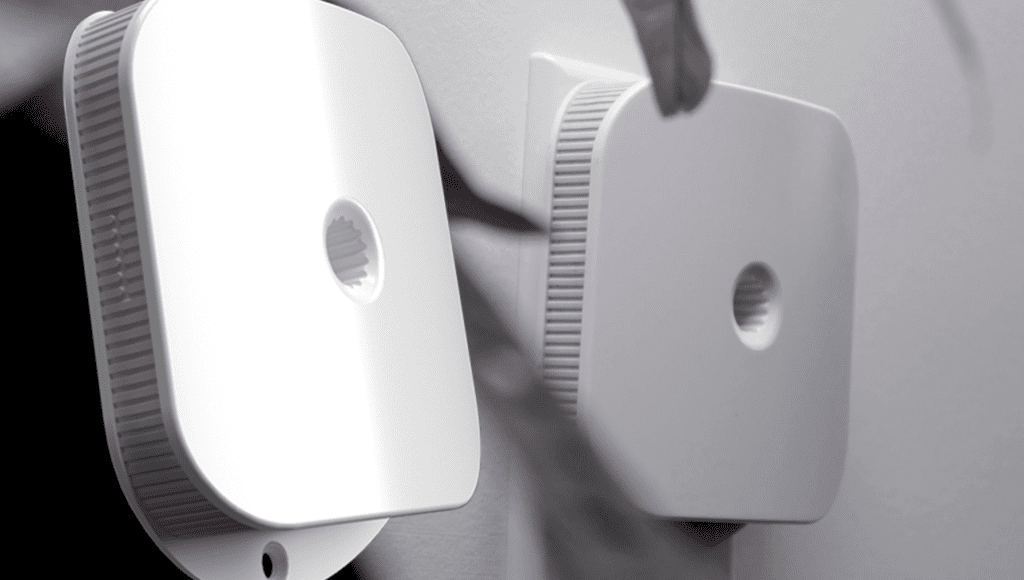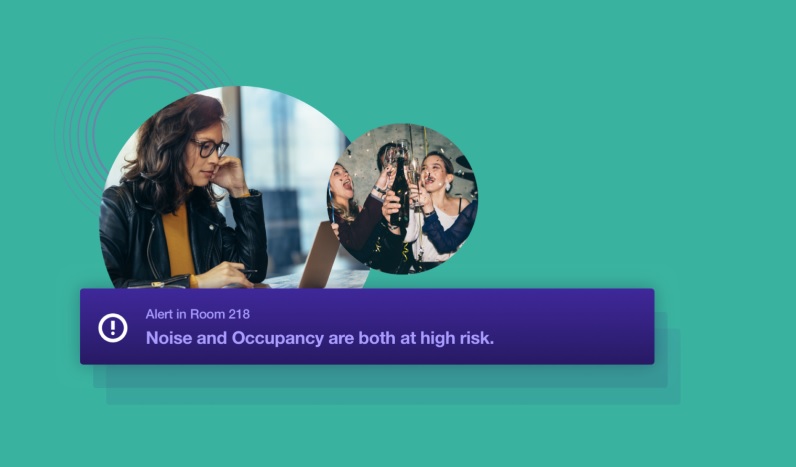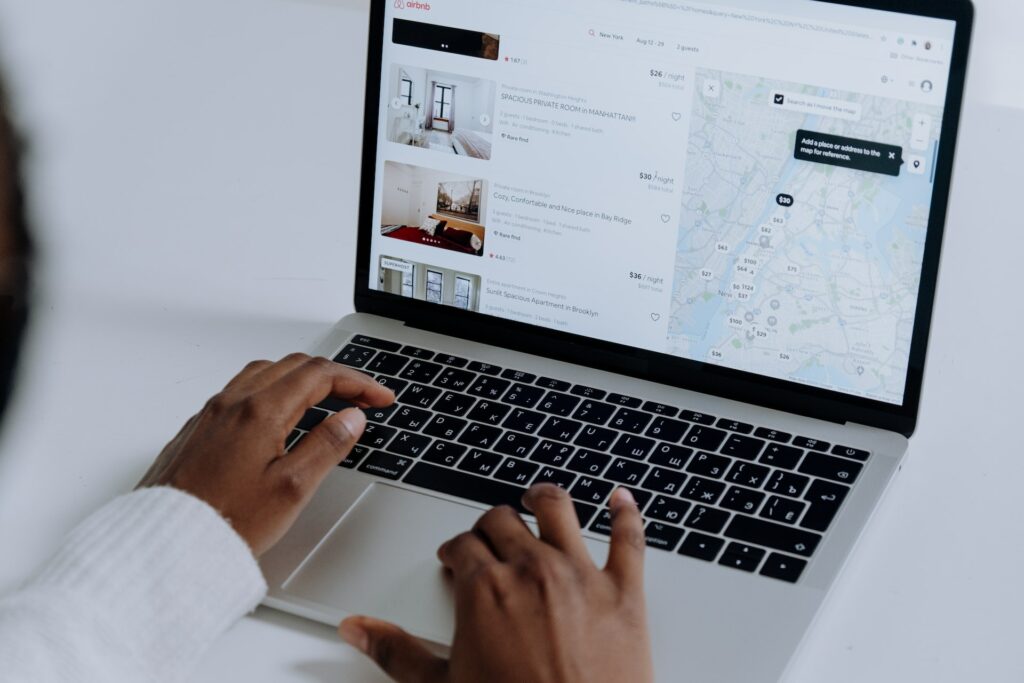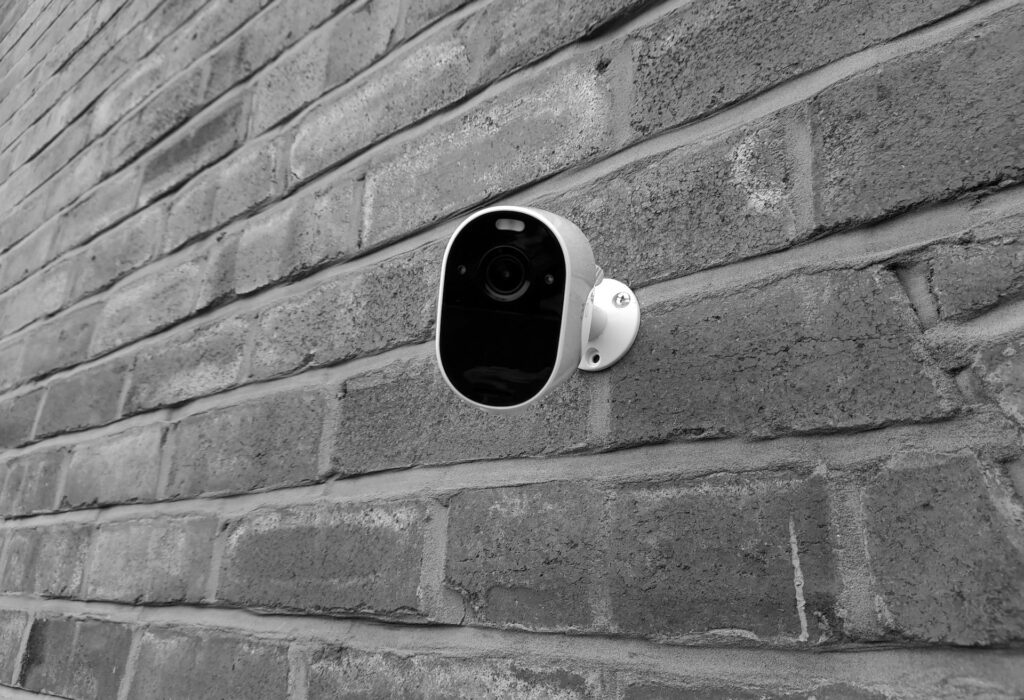THE STR SECURITY PLAYBOOK
CHAPTER 5
8 Ways to Prevent Parties at Your Short-Term Rentals
Avoid costly and damaging guest parties before they even start

It’s the classic nightmare scenario that every short-term rental host dreads: An unauthorized party at your property. Airbnb may have banned parties in August 2020, but that doesn’t mean guests will automatically comply. And what about reservations from other platforms, or direct bookings?
Because parties are risky for rentals (as you probably already know). They’re liable to cause damage and excess noise, putting you, your business, your rentals (and your homeowners) at risk of costly repairs and downtime, unhappy neighbors, and even legal issues if police are called.
Talk about stressful—especially if you’re running your business remotely, or expanding to more properties than you can physically keep an eye on.
Luckily, there are some highly-recommended ways to prevent parties even before guests check in and after arrival (without appearing invasive or putting trustworthy guests off). Plus, some recommended actions to take if a situation does eventually escalate.
Setting up your rentals with connected technology—to make monitoring and communication between you and the guest easier—is an important way to minimize risk.
Here’s how…
- PLUS, check out our copy-and-past examples of how to communicate your house rules without putting guests off
- AND a full eight-point breakdown of what you need to know if you decide to install cameras outside your units
Make your smart technology work for you.
1. Screen guests and know the reason for their stay


Screening guests using reliable, consistent, and intelligent technology is a major way to prevent problems before they even arise.
Using digital tools to perform background checks using just a name and ID is an easy way to ensure due diligence without appearing invasive or putting guests off with too many questions upfront.
Screening tools can automatically check for the risk of fraud, credit card chargebacks, previous bad past reviews, and even criminal history, with no extra work from you or the guest. Some tools, like Autohost, are industry-leading and integrate with Operto as a seamless part of your tech system.
If any guest is flagged, you can check them manually (for example, to see if there’s a legitimate reason they’re booking with a card that’s under a different name).
We recommend:
- Message guests in a friendly way to ask why they’re visiting
- Ask them for their full names and ID for security purposes and use these to run screening
- Set your cancelation policy to enable guests to cancel within 24-48 hours if an issue shows up
A guest that’s planning to break the rules, hold a big party, or has no intention of treating your property respectfully may balk at these checks, which is another good way to detect any suspicious behavior early on.
You might ask:
- What brings you to town?
- How many people are staying?
- Do you plan on having any guests?
If you make this part of a conversation, and pepper your responses with friendly notes or helpful local recommendations, your questions will still get the job done without coming off as intrusive.
Respectful guests will likely be happy to share the reason for their stay with you, and be willing to offer their details to secure their booking. Those who aren’t will go elsewhere.
Automate ID verification as part of your digital check-in process with Operto Guest.
2. Establish good communication with guests


Asking friendly questions is also a good way to show interest in your guests, provide helpful local insights, and establish good communication straightaway.
Striking up a good rapport with guests is a good way to remind them that you’re a real human, trying to give them a good stay and doing your best to keep your properties in good condition.
Psychologically, this will deter some guests from breaking rules (even if they were planning to, or not paying much attention at first). This is because your property now appears less as a random rental, and more like someone’s home or business that should be respected.
Getting to know your guests and showing interest in their stay can also help them feel respected too, and the vast majority of guests are likely to return the favor.
Platforms such as Operto Guest enable you to set up efficient, automated, and friendly messaging with guests from the start, so they have everything they need ahead of their stay. This way, your guests will have an easy and accessible way to contact you, reinforcing your relationship further (and making rule-breaking less likely).
Make guest communication easy and reliable.
3. Use noise monitoring systems to put a quick stop to a party


Installing a noise monitoring solution is an increasingly popular, effective tech-based way to keep track of what’s going on at your properties. It’s also scalable, as you can install monitors easily as you grow your rental business.
Noise monitoring may sound intrusive and controversial, but it’s not. It’s actually designed to offer you insight into noise levels without intruding on guest privacy.
Here’s how it works:
- Noise monitors sit discreetly in your properties
- They do not listen in, record, or broadcast at any time
- Their only function is to send alerts if the decibel levels in your property continuously breach a customized threshold for a sustained period of time.
For example, one loud laugh, one accidental blast of music, or a slamming door, will not trigger an alert. However, if the noise stays high for longer than, say, five minutes—as it would during a party due to talking or music—the monitor kicks into action. Both you and the guest receive a message warning them of nuisance noise, and inviting them to keep it down.
Using a tool that connects to your wider tech stack, such as NoiseAware—which integrates with Operto—you can set your acceptable decibel level thresholds, and quiet hours. You can also customize the alerts sent to guests, to ensure they’re friendly but firm.
If decibel levels remain high, you can decide on your course of action. This could include sending your guest a message with a reminder of your house rules, or visiting the guest in person.
Monitor noise levels across all of your units, and receive automated alerts when there’s a problem, with Operto Tech.
4. Use occupancy monitors to stay informed in real-time


Noise monitoring isn’t the only way to check if a party is happening. Occupancy monitors can help you determine how many people are in the property too—pretty useful if your 4-bed home now suddenly seems to have 20 people inside.
Just like noise monitors, occupancy monitors are designed to be unintrusive. They:
- Don’t count the exact number of people
- Do not record, film, or broadcast.
Some detect how much carbon dioxide is in the air (the more CO2, the more people), while others use movement sensors to detect how many people are in the property.
So while they may not be able to detect a small gathering of five people instead of the booked three, they’ll definitely let you know if a huge group suddenly shows up.
Occupancy monitors are smart sensors that—just like noise monitors can trigger customizable alerts to be sent to guests (and you or your property manager) automatically—for friendly-yet-firm reminders of the rules, without you actually having to be on-site.
These tools are designed to keep guests informed, ensure your methods are transparent, and give guests a chance to stick to the house rules before you begin to enforce your rule-breaker policy.
In a similar vein, using smart lock technology may help alert you to unexpected comings and goings at your property. Some smart locks—many of which integrate with a system such as Operto Tech—enable you to see when a code has been used to access your property, giving you more insight into what’s going on.
If a lock is continually being opened and closed, this might be a red flag that a lot of groups are showing up, being let in or out, or that people may be potentially moving between spaces (such as a living room and outdoor area), perhaps to smoke or hang out outdoors.
This could be a sign of a party, and give you another reason to investigate.
Keep track of all of your rentals across a single platform.
5. Set clear house rules and establish expectations


They say the best cure is prevention, and setting house rules upfront to establish super-clear expectations is the best way to do this.
Highlight your rules at every opportunity to avoid misunderstandings or any chance for a guest to claim they “didn’t see them.”
Include your house rules (especially the core, important ones such as “no parties”) in:
- Your listings
- Your pre-check-in messages
- Your check-in welcome message and/or digital guidebook
Keep them clear, short-and-sweet, and accessible, such as by sending them in a text message or email, or putting them somewhere clearly visible in your properties.
Tools such as Operto Guest enable you to tailor your house rules to different units, and roll them out across your entire portfolio, making the system scalable, customizable, and consistent.
When it comes to parties, it’s best to be clear, and friendly but fair. Everyone knows what “no parties” or “no smoking” means, so keep your rules to the point here.
Your rules should also lay out, again clearly and fairly, what will happen if a guest holds a party or knowingly causes property damage as a result of a gathering.
This might include:
- Eviction or short-notice ending of the booking
- Payment of a fine for extra cleaning
- A bad review of the guests
PRO TIP: State your rules without putting the guest off
Your house rules don’t have to be overbearing or rude, but should make your expectations and the guests’ responsibilities clear.
For example:
This way, you can let guests know about the rules without putting them off booking, leaving a bad taste in their mouth, or preventing them from enjoying their stay in the first place. |
You can also require your guests to agree to the rules, and even ask them straight-out: “These are the rules, can you confirm that you agree to them?” before they book, or ahead of check-in.
Trustworthy guests who are planning to adhere to the rules won’t mind, and those with less-honorable intentions will likely go elsewhere.
6. Have someone on the ground to help


In the worst-case scenario, you may want to have the phone number or contact details of some people who are nearby who can enter your property.
Not only is this a good idea in case of emergencies, but it also means that you have someone to turn to if your guests still throw a noisy, damaging party despite your best efforts.
You could try:
- A willing friend or family member
- An assistant (like an Airbnb host or co-host) who is paid a percentage of your takings if they work
- A local vacation rental property manager or company
You might also draw up a list of contacts to call if you need fast access or assistance, such as a non-emergency police line, neighborhood watch monitor or patrol, or a 24/7 locksmith who can gain access as a last resort.
Relying on in-person help is less scalable and more costly than rolling out digital automation technology, but it could be a good option in an emergency.
7. Require longer minimum stays


Introducing longer minimum stays for your rentals is one way to keep the risk of parties down. That’s because most people who book rentals for one “big night” are unlikely to stay for longer than a day or two.
People who book longer-term stays—such as digital nomads, or families on a one- or two-week break—are much less likely to organize damaging parties or intentionally break your house rules, as they’re planning on sticking around.
This may be a challenge for you as a host or manager, because enabling more flexible stays and one- or two-night breaks can help fill your calendar.
However, offering discounts for longer stays, such as 10-30% off for a weekly or monthly booking, may help to offset the difference by encouraging longer-stay guests to book consistently, so you’re less reliant on more-risky (and logistically more demanding) one- or two-night stays.
8. Install external cameras as a last resort


External security cameras may help you to feel extra safe, and can keep track of comings and goings at your properties.
You must be aware that:
- External cameras can’t be directed at properties or into any private spaces, such as bathrooms or bedrooms (or any space that has a sleeping area, such as a sofa bed)
- Vrbo specifically bans cameras from anywhere except the outside of the property
- Airbnb only allows cameras that show “public spaces” or “common spaces”
- There are laws in place, which vary from state to state, dictating how and for how long you can store any recordings
- Audio recording is subject to even greater legal scrutiny
- You must make cameras’ presence extremely clear at the entrance and in your listings, and anywhere a camera is installed (such as displaying a prominent sign that reads “CCTV recording in operation”)
- It’s illegal to record images or audio of people without consent, or to use the recordings against them later as a form of blackmail
- Concealed or hidden cameras are not allowed anywhere
Despite these extra complications, however, cameras may be useful in a remote area, as an extra way to detect large groups or unexpected arrivals at your property’s front door.
Some guests may not like them, however, and they may come off as intrusive (as well as being a legal gray area) so it’s your judgment call on how to balance camera use with guest safety and property security, and whether you need to take measures that far.
Digital automation tools that include noise and occupancy monitoring, as well as laying out clear house rules, are likely to be enough for most hosts.
Party prevention: Screen, communicate, and monitor with smart tech
Preventing house parties in your short-term rental properties means taking action at all stages of your rental stays, and using technology to make the process even easier (for better results with less work for you).
Pre-stay, it’s important to make your expectations clear from the start, list house rules, and establish good boundaries and communication even before booking. Then, guest screening, great communication, and in-room smart devices can help you keep ‘watch’ without infringing privacy.
Harnessing the power of smart technology, such as via Operto Tech and Operto Teams, can help you to implement better communication, guest screening, and smart monitoring, to automate as many processes as possible, and helps to avoid problematic, party-throwing guests from arriving in the first place. Plus, unlike in-person monitoring, smart tech can scale as your business grows too.
This ensures safer stays, prevents parties, protects your property and business, and gives respectful guests a safe and enjoyable stay, without requiring time-consuming in-person monitoring or hours of manual messaging.
A simple noise monitoring solution can provide the same peace of mind you want to provide for your guests.
Discover Operto’s Noise and Occupancy solutions.
Frequently asked questions about STR party prevention
How do I stop Airbnb parties?
Stopping Airbnb parties requires a multi-pronged approach. Before their stay, screen guests using automated technology, require them to agree to the house rules, state your policies clearly, and establish good communication. Then, you can use in-property noise and occupancy devices to keep tabs on what’s happening without infringing guest privacy. Using external cameras may also be a possible last-resort option. If a party kicks off, you may want to have someone nearby who can intervene. Policies such as requiring longer-term bookings can also help.
What is the Airbnb party policy?
Airbnb banned parties from all of its properties from August 20, 2020, partly as a result of the pandemic. It applies to all bookings on the platform and is set to remain in force “until further notice,” the company said. Occupancy at homes is limited to 16 people. Guests who violate the policy may be “legally pursued by Airbnb,” it has said. It’s looking into exceptions for some venues, but the party ban for most properties still stands.
How can I check the number of guests at my rentals?
Checking the number of guests can be done in several ways, and starts during pre-stay. Make your occupancy limit clear on your listings and reiterate the limit in your house rules on your page. When guests inquire or book, ask them to confirm how many guests will be staying. Use smart devices such as occupancy monitors to check the CO2 in the air (more CO2 means more people). The devices can’t detect one or two more people, but they will send alerts if a much larger group is suspected. Connecting smart devices to platforms such as Operto Tech can make this much easier.
How can I stop party bookings at my rental?
As a host or property manager, there are more measures you can take to avoid bookings from people who are planning a party. These include security screening guests before they arrive using smart tech (and allowing guests to cancel if they don’t pass the checks), asking guests polite-but-firm questions about their stay before they book, and making your house rules and policies clear on your listings. You can also implement policies such as only allowing longer-term guests, as they are much less likely than one-night booking guests to throw an unauthorized, noisy, or damaging gathering.
Reduce parties and cut down on your workload.